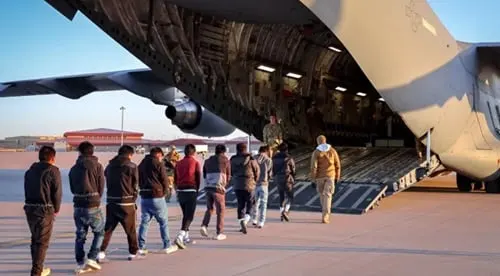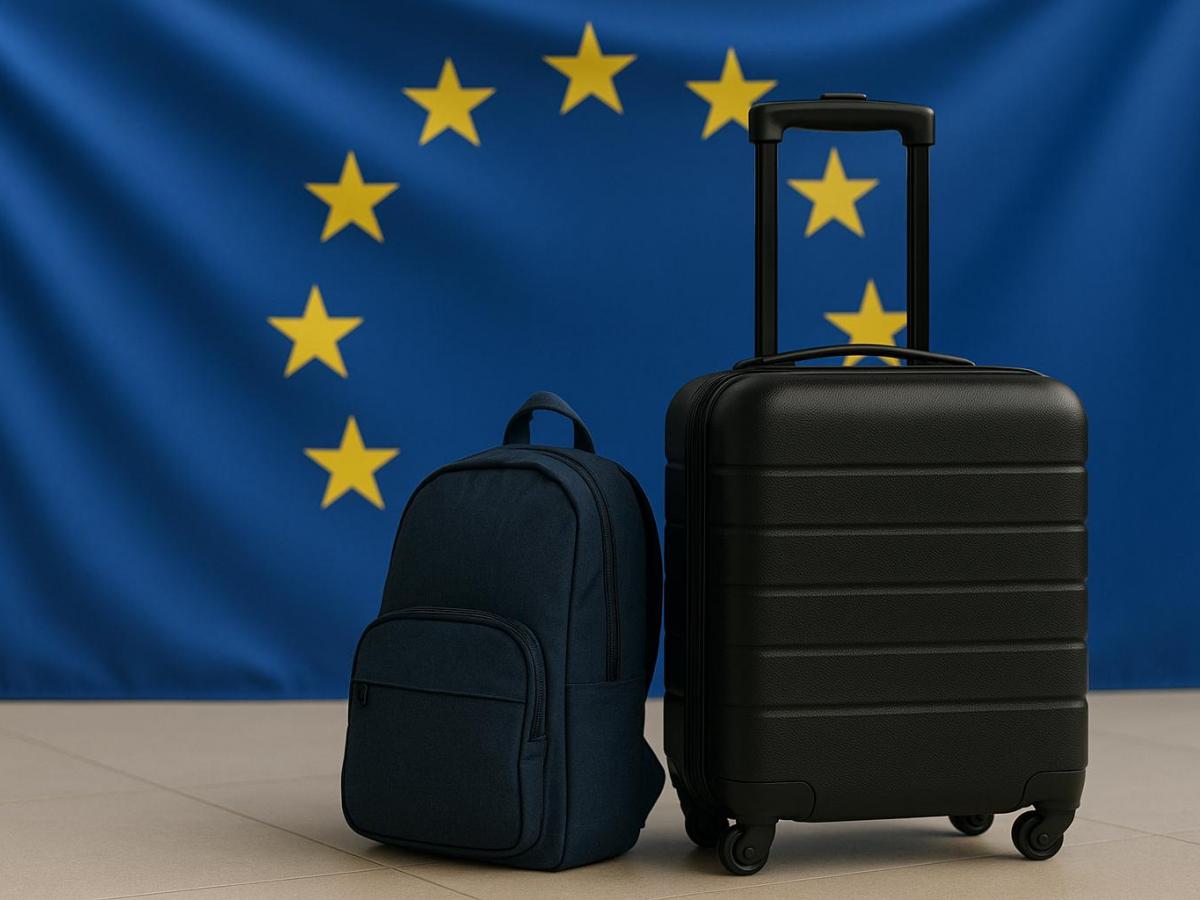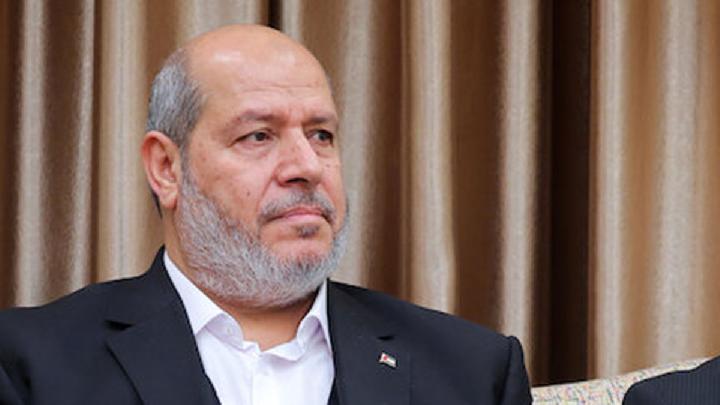By Henrietta Afful,Nana Karikari
Copyright gbcghanaonline

By: Nana Karikari, Senior Global Affairs Correspondent
Ghana’s acceptance of third-country nationals deported from the United States has thrust a quiet diplomatic agreement into a searing public controversy, testing the very foundation of West African unity. President John Mahama’s administration, citing the regional ECOWAS free movement protocol, positions Ghana as a transit hub. This pragmatic approach, however, clashes with Nigeria’s defiant pushback and exposes a deepening fissure within the bloc. The deal unfolds against a backdrop of a more aggressive US foreign policy under the Trump administration, one that leverages economic pressure and visa restrictions to force compliance from its partners. This is not simply a bilateral arrangement. It is a powerful illustration of a global power imbalance, with human lives caught in the geopolitical crosscurrents.
The Human Cost and Legal Vacuum
The immediate humanitarian toll of these deportations looms over the deal. Rights groups universally condemn the US strategy of sending migrants to countries with which they have no ties. This practice, often conducted in secrecy, violates international human rights standards. The case of five men deported to Eswatini serves as a chilling example; they were reportedly held in a maximum-security prison for weeks without charge. “We are sacrificing human beings for political expediency,” declared Ugandan human rights lawyer Nicholas Opio. While the government of Ghana says it will assist with onward transit, the initial disorganization and loss of documents create a terrifying limbo.
For an individual arriving without resources, a visa-free entry is a hollow promise. It fails to address the deep-seated vulnerability of a person stripped of their community, their history, and their legal protections. United Nations human rights experts have also voiced alarm, stating that deporting people without an individualized assessment of risk violates the international law principle of non-refoulement, which prevents a person from being sent to a country where they face a substantial risk of serious human rights violations.
Constitutional Challenge and Parliamentary Red Flags
The Minority in Parliament is raising red flags over revelations that Ghana has become a receiving point for deportees from the United States, describing the arrangement as unconstitutional and a threat to the nation’s sovereignty. The concern was triggered after President John Mahama disclosed at his maiden media encounter that 14 individuals had already been flown in as part of the arrangement. According to the President, most of the deportees were Nigerians, with one Gambian national among them. He explained: “We were approached by the US to accept third-party nationals who were being removed from the US, and then we agreed with them that West African nationals were acceptable, because all our fellow West Africans don’t need a visa to come to our country. “So if they decided to travel from the US to Accra, they don’t need a visa anyway. So if you are bringing our colleague West Africans back, that’s okay.”
But the Minority Caucus on the Foreign Affairs Committee insists this agreement breaches the Constitution. “This revelation raises serious constitutional, sovereignty, and foreign policy concerns which cannot be overlooked,” the statement signed by Ranking Member Samuel Abdulai Jinapor said. Citing Article 75 of the Constitution, the Minority stressed that “any treaty, agreement, or convention executed by or under the authority of the President must be laid before Parliament and ratified.” The statement referenced Supreme Court rulings in Banful v Attorney General and Brogya Gyamfi v Attorney General to argue that the purported agreement with the United States falls squarely within this scope.
Government Defends Deal as Humanitarian, Not Financial
The debate over the arrangement’s motivations has intensified with recent government statements. The Minister for Foreign Affairs, Samuel Okudzeto Ablakwa, directly addressed accusations that the agreement was a financially motivated quid pro quo. He explicitly denied that Ghana had received any financial or material compensation for accepting the deportees.
Speaking at the Government Accountability Series at the Jubilee House on Monday, September 15, Mr. Ablakwa stressed that the arrangement was not motivated by profit. “It is important to state that Ghana has not received any money, compensation or any material benefit in relation to this understanding. Our decision is grounded purely on humanitarian grounds and principle,” he said. He maintained that the agreement was carefully managed and aligned with international humanitarian standards, assuring citizens that the government’s priority remained the safety and dignity of Ghanaians while honouring the nation’s obligations within the international community.
U.S. Judge Raises Legal Alarms Over Deportation ‘End Run’
The legal controversy surrounding the deportations has crossed the Atlantic, with a U.S. federal judge questioning the legality of the U.S. government’s actions. A lawsuit filed by advocacy groups on behalf of five of the deported migrants claims that the Trump administration intentionally used the Ghana agreement to bypass U.S. legal protections, which had barred their deportation to their home countries. Judge Tanya Chutkan, based in Washington, D.C., ordered the administration to explain its actions, underscoring the legal and ethical murkiness of the arrangement.
The move exposes the deal not just as a diplomatic agreement, but as a direct challenge to the rule of law. The court’s intervention highlights the dangerous precedent such arrangements set for human rights and due process. One of the migrants, a bisexual man, has already been sent to The Gambia, where he is now in hiding despite a U.S. legal protection against his return. This underscores the immediate and terrifying human consequences of the policy.
“The Court properly recognized that the United States government, with full knowledge that these individuals are going to be sent to danger, cannot simply wash their hands of the matter.” – Lee Gelernt, American Civil Liberties Union.
ECOWAS Unity Faces a Stress Test
President Mahama’s justification for the deal on the basis of the ECOWAS free movement protocol presents a legal and political dilemma. The protocol, conceived to foster regional integration, was never intended to be a conduit for external powers to offload unwanted migrants. While Ghana argues it is simply facilitating transit to a person’s country of origin, Nigeria’s vocal opposition highlights a profound disagreement. Nigeria’s Foreign Minister Yusuf Tuggar previously stated that African nations were under “significant pressure” to accept these migrants and insisted his country would not capitulate. This divergence between Accra and Abuja, two of the bloc’s most influential members, reveals a fragile consensus.
The 14 people already deported to Ghana include “several” Nigerians and a Gambian, the president said. He said Ghana had already facilitated the return of the Nigerians to their country by bus while the Gambian was still being assisted to return home. This raises a critical question: will other ECOWAS nations follow Ghana’s lead, or will they align with Nigeria’s more resistant stance, risking diplomatic and economic retaliation from Washington?
US-Ghana Relations and The Art of Coercion
The deportation agreement is a direct consequence of the “tightening situation” in US-Ghana relations described by President Mahama. He cited the hiked US tariffs on Ghanaian goods and visa restrictions on its nationals. He however said relations remained positive.
The Trump administration has employed a transactional approach, using a carrot-and-stick strategy to achieve its policy goals. The simultaneous increase in US tariffs on Ghanaian goods and new visa restrictions on its citizens suggest a powerful, though unstated, quid pro quo. For example, a new decree signed by President Trump removed the “de minimis” trade loophole, directly impacting Ghanaian artisans and small businesses that rely on low-cost exports to the U.S. market. The US government defends its policy as a necessary step for national security and to combat illicit trade.
For Ghana, a stable democracy and a key US partner, this creates an unenviable choice. Accepting the deportees may be seen as a necessary concession to preserve a vital relationship, one that includes security cooperation and development aid. The deal, therefore, is not a sign of positive relations, but a stark measure of Washington’s leverage and Ghana’s difficult position as a subordinate partner in the global power dynamic. The Trump administration has approached a number of African countries to accept deportees as part of its push to deter immigration. Some of those deported have been citizens of countries such as Jamaica, Vietnam and Laos, with rights groups arguing that this violated their basic rights.
Ghana’s Role Sparks A National Debate
Ghana’s decision sets a controversial precedent for the rest of Africa. While other nations like Rwanda and Eswatini have quietly entered similar agreements, Ghana is the first in West Africa to do so, inviting intense scrutiny. On the streets of Accra, the news has ignited a fierce debate. “We are compassionate people, we must help our brothers,” said Nii Nortey Parkes, a local market trader, echoing a sentiment of regional solidarity. Conversely, Esinam Gavor, a university student argued, “We cannot be the world’s refugee camp. The US has no right to put their problems on us.”
This is a conversation that touches on national sovereignty, regional identity, and the fundamental moral obligations of a nation. Ghana’s choice, born of geopolitical necessity, has ignited a profound and necessary conversation about its role in a changing global order and the complex, human consequences of a distant crackdown on immigration. Some countries have pushed back against the deportation strategy. Nigeria, which has been a vocal opponent, has previously said it would not bow to pressure to accept third-country migrants from the United States.



